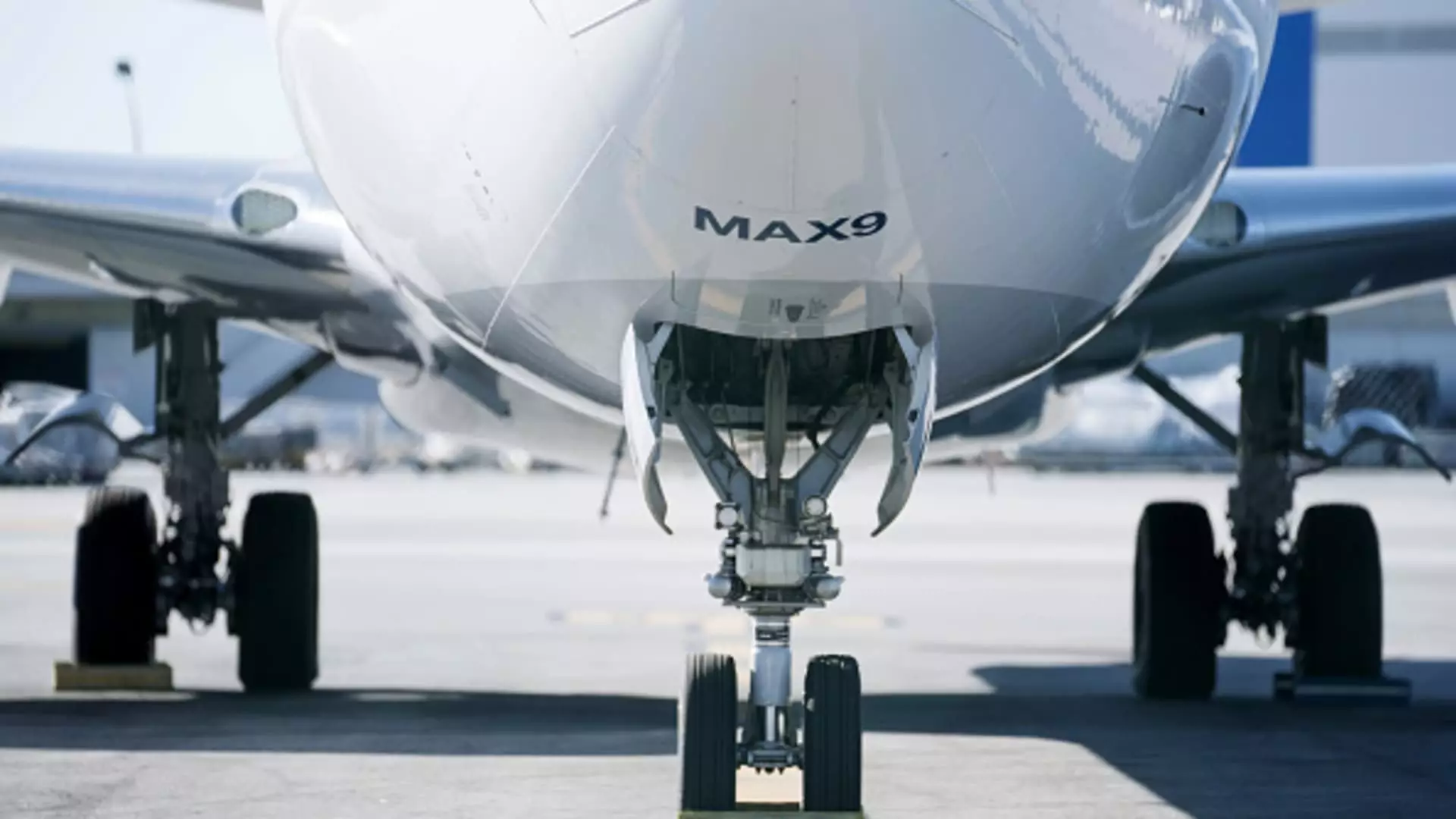During the past month, Boeing has experienced a significant decline in its reputation, according to surveys conducted by Morning Consult. The findings indicate a decrease in net trust among U.S. adults by 12 percentage points from December 2023 to January 2024. The drop in trust was also observed among frequent flyers and business travelers, highlighting the extent of the negative impact. This decline in trust comes in the wake of a door plug incident involving a Boeing 737 Max 9 operated by Alaska Airlines on January 5. Despite this setback, other airlines like United Airlines and Alaska Airlines have managed to maintain their reputation amidst similar incidents.
Morning Consult’s report, based on a survey of nearly 170,000 people, revealed a significant decline in net trust for Boeing. Net trust represents the percentage of individuals who trust a brand subtracted from those who do not. The report further highlighted that the decrease in net trust was more pronounced among U.S. adults but also affected frequent flyers and business travelers. Joanna Piacenza, Morning Consult’s head of industry intelligence, emphasized this downward trend in trust.
Interestingly, Morning Consult’s report indicated that the negative impact on trust was not observed for Alaska Airlines or United Airlines, despite their involvement in incidents related to Boeing 737 Max 9. United Airlines discovered loose bolts during inspections, while Alaska Airlines had the door plug incident. Comparing the reactions of these airlines to that of Boeing, Morning Consult’s report suggests that the loss of trust might be more closely associated with Boeing’s name rather than the specific incidents involving its aircraft.
Boeing’s reputation has faced worse times in the past, particularly when its net trust among U.S. adults dropped below 6% after the crashes of two Max 8s. Lion Air Flight 610 in October 2018 and Ethiopian Airlines Flight 302 in March 2019 dealt a severe blow to Boeing’s reputation. However, since 2020, Boeing has managed to slowly rebuild trust, with high-dollar investors leading the way according to Morning Consult. Generally, Americans tend to exhibit higher levels of net trust in Boeing compared to its main competitor, Airbus. However, for the second time in five years, respondents from the United States have shown more confidence in Airbus, as indicated in the report.
According to Joanna Piacenza, the negative impact on Boeing’s net trust is likely to continue, especially as the brand remains in the headlines. However, she emphasized that this decline may not be as severe as seen in March 2019, following the two deadly crashes. The Alaska Airlines incident did not result in any casualties, leading to a more limited impact on trust.
The FAA’s Announcement
After grounding approximately 170 Max 9s, the Federal Aviation Administration (FAA) recently announced that planes passing inspections can now resume operations. Following this announcement, Alaska Airlines, United Airlines, and Copa Airlines have already started flying the Boeing 737 Max 9s again. Eleven different airlines currently operate these aircraft, including Aeromexico, Air Tanzania, Alaska Airlines, Copa Airlines, Corendon Dutch Airlines, Flydubai, Icelandair, Lion Air, SCAT Airlines, Turkish Airlines, and United Airlines, according to the website Simple Flying.
Boeing’s reputation has suffered a significant blow in recent times, with a noticeable decline in trust among U.S. adults, frequent flyers, and business travelers. The negative impact on trust is not shared by other airlines involved in similar incidents, raising questions about the association between trust and Boeing as a brand. Despite these challenges, Boeing is working to improve its quality, performance, and safety measures. The repercussions of these incidents are expected to continue, albeit to a lesser extent than the severe decline experienced in 2019. As Boeing endeavors to regain trust and bring its aircraft back into service, the aviation industry closely watches the actions and decisions of this renowned aerospace company.


Leave a Reply